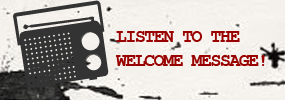The British Animal Studies Network (BASN) was established to provide a forum for scholars, students, artists and interested individuals to “further our understanding not only of the place of animals in our world, but of the status and role of humans too.” BASN is organized with the financial support of the Arts and Humanities Research Council of Great Britain and Middlesex University. It is led by author and scholar, Dr Erica Fudge, who is also Associate Editor of Society & Animals published by the Animals and Society Institute.
The focus of meeting five, which is in a series of 10, was “Representing Animals.” This is the third meeting that the Grumpy Vegan has been able to attend. He’s not embarrassed to admit that some of the previous speakers have spoken about subjects that were difficult to understand. This meeting, however, was the most interesting and informative to date.
The speakers focused on the differing ways in which animals are represented in visual arts, science and literature.
For example, Diane Donald, author of Picturing Animals in Britain, considered such artists as Landseer, Stubbs and Turner and how they used animals (e.g., hunting, taxidermy) and represented animals in their art. She challenges us to consider that the visual representation of animals has greater potency than in a text. I was reminded of how people quickly don’t want to be shown photographs and video of animal cruelty.
In the discussion prompted by Dr. Philip Armstrong, however, he asked us to consider such novels as Robinson Crusoe, Gulliver’s Travels and J.M. Coetzee’s Disgrace and the powerful and different ways in which animals were depicted as well as the relationship the protagonists had with those animals. He outlined two ways in which this can be considered: the Rationalized Sympathetic Identification and the Radical Sympathetic Identification. The former represents the orthodox face of enlightenment where there is a feeling toward animals while making sure human interests are paramount. The latter attempts to understand what it is to be an animal and to experience the world as they do. By the way, Dr. Armstrong is Co-editor of Knowing Animals, which “investigates the benefits of knowing animals differently: more closely, less definitively, more carefully, less certainly.” Knowing Animals is the fourth book in the Human-Animal Studies series edited by my ASI colleague, Ken Shapiro.
Gail Davies focus was on the representation of transgenic and chimerical species, including animals, in science. Darwin showed us the continuity of life between humans and animals but increasingly science is erasing the species boundaries. Transgenic mice are bred with human genes and plants are grown with animal genes.
All of this reminded me of art where roles are reversed (“upside down worlds”). For example, I have hanging on my way at home an old print which shows in a series of drawings if I can remember them correctly a man pulling a cart with a mule directing where it’s going, a servant ordering an aristocrat on how to do the laundry and so on.
Two novels also came to mind. The first is Great Apes by Will Self and Flush by Virginia Woolf. Self’s protagonist is a man who finds himself living in a world where humans are chimpanzees behaving like humans. This meeting prompted me to reread Flush and to declare it a masterpiece. Woolf imagines Elizabeth Barrett Browning’s beloved Cocker Spaniel, Flush, without relying upon the literary conceits of anthropomorphism (e.g., talking rabbits in Watership Down) and sentimentality (e.g., moralizing humans and horses in Black Beauty). We experience Flush as close as I think we could imagine how a dog experiences the world.
Many other artists and their work and topics were touched upon in what was a fascinating Saturday afternoon. Erica Fudge summed it all up by saying that really what we’re talking about is the “Discourse of Mastery.”






